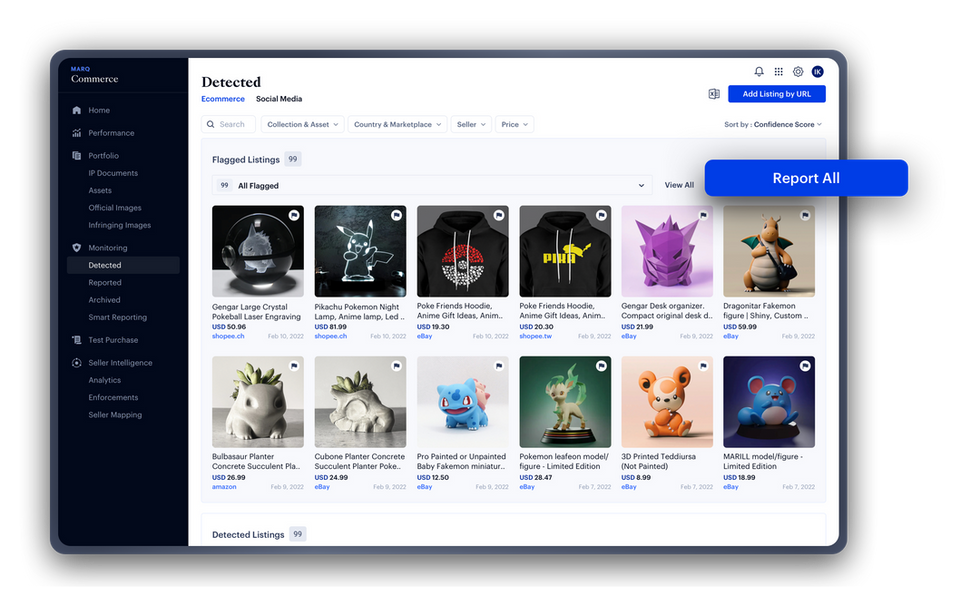Any Angeleno who’s been duped by a false designer item in the Fashion District understands the value of knowing exactly what is on sale – especially since to the average untrained eye, it’s hard to tell the difference between an authentic and a scam.
As ecommerce continues to grow and the global market is expected to hit $5.5 trillion this year, more brands are turning to digital loss prevention to stem losses – and prevent getting a bad rap for faulty fake products.
One local startup based in West Hollywood is betting that using artificial intelligence is the key to identifying counterfeit items and removing them from the marketplace by scanning over 1,500 online retailers across 115 different countries and comparing the minute details of their products to original items in order to weed out fakes.
MarqVision raised $20 million this week to continue developing its software that scans for counterfeit items in a bid to prevent fraud. It will also use the funding to expand its operations, with plans to open its first European outpost in Paris this fall (the company already has offices in Boston and South Korea).

The company was incubated and funded by Y Combinator and launched two years ago. According to Pitchbook data, it has raised just over $28 million following this round from investors including SoftBank and South Korean firm Bass Investment.
CEO and Massachusetts Institute of Technology alumni Mark Lee co-founded MarqVision with Chief Business Officer Do Kyung Lee in 2020. Since then the company’s attracted clients including Niantic’s Pokemon, Seoul-based jewelers Didier Dubot and Ralph Lauren. MarqVision claims it removed $1 million worth of counterfeit Ralph Lauren merchandise in online marketplaces aimed at Korean shoppers as part of a case study.
Lee told TechCrunch Tuesday that the platform has a 97% accuracy rate and claimed the software can “process thousands of reports every hour” without the need for humans manually sorting and filing the paperwork to brands once they detect a fraudulent item. He also hinted that alongside physical merchandise, MarqVision might soon expand its platform’s capability to recognize counterfeit NFTs.
“Creative assets are under assault in today’s digital world, with content owners left largely unprotected as consumers get hoodwinked into buying fake goods and NFTs by sophisticated counterfeiters,” Lee told TechCrunch. “Unlike our competitors, which are forced to review manually in time-consuming processes, MarqVision’s process end-to-end is mostly automated.”

